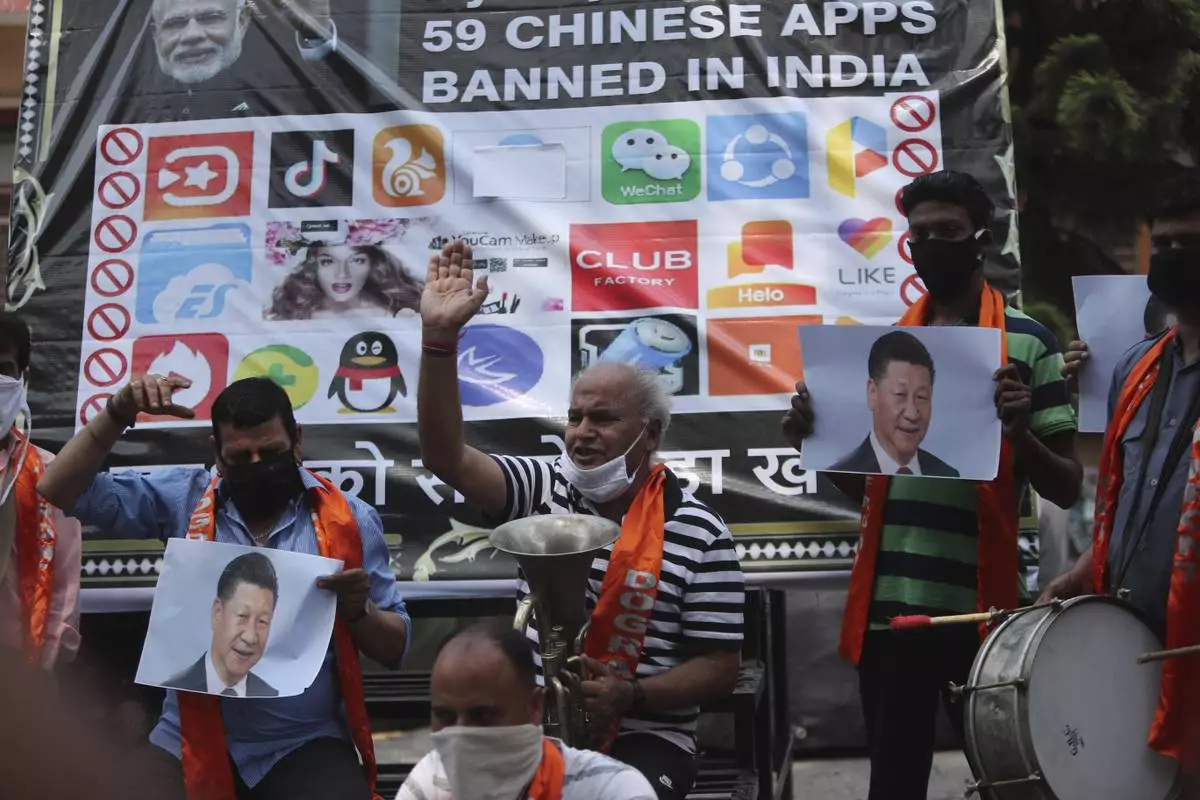A Republican congressman in central Arkansas and his challenger on Thursday condemned a political action committee's radio ad that suggests white Democrats will lynch black Americans if they win the midterm election next month.
GOP Rep. French Hill criticized the ad from Black Americans for the President's Agenda, which invokes the accusation that Supreme Court Justice Brett Kavanaugh sexually assaulted a woman when he was a teenager. A woman in the ad says that "white Democrats will be lynching black folk again."
"I'm voting to keep Congressman French Hill and the Republicans because we have to protect our men and boys," the woman in the ad says. "We can't afford to let white Democrats take us back to bad old days of race verdicts, life sentences and lynchings when a white girl screams rape."
Hill, who represents the 2nd District covering Little Rock and seven central Arkansas counties, blasted the ad.
"I condemn this outrageous ad in the strongest terms," he said in a statement. "There's no place in Arkansas for this nonsense."
Vernon Robinson, the PAC's co-founder and treasurer, said the ad has been running in Little Rock. He said the ad is part of a $50,000 buy that includes a similar spot running on stations in Missouri, where Republican Josh Hawley is trying to unseat Democratic Sen. Claire McCaskill. The group had not coordinated the ad with Hill or spoken to his campaign about it, Robinson said.
Robinson did not immediately respond to an email Thursday night from The Associated Press asking if the group planned to pull the ad.
Clarke Tucker, the Democratic state legislator trying to unseat Hill, also condemned the ad.
"Congressman Hill and his allies will have to live with the kind of campaign they're running. This radio ad is disgraceful and has no place in our society," Tucker said in a statement. "We won't let these shameful tactics distract us from why we're running, to stand up for the people in Central Arkansas on the critical issues in our lives, not just health care and good-paying jobs but also having some basic decency in our political process."
The North Carolina-based PAC was formed earlier this year and this week reported having about $52,507 cash on hand and $62,769 in debt. The group has spent about $30,000 in recent weeks on ad buys in Arkansas and Missouri races, according to Federal Election Commission records.
Arkansas hasn't sent a Democrat to the U.S. House since 2010, but Tucker is mounting a surprisingly competitive bid to unseat the two-term Hill. Democrats are relying on a heavy turnout in Little Rock and its surrounding county, which is about 37 percent black and 6 percent Hispanic.
Associated Press Writer Brian Slodysko in Indianapolis contributed to this report
Follow Andrew DeMillo on Twitter at www.twitter.com/ademillo
NEW DELHI (AP) — The hugely popular Chinese app TikTok may be forced out of the U.S., where a measure to outlaw the video-sharing app has won congressional approval and is on its way to President Biden for his signature.
In India, the app was banned nearly four years ago. Here's what happened:
In June 2020, TikTok users in India bid goodbye to the app, which is operated by Chinese internet firm ByteDance. New Delhi had suddenly banned the popular app, alongside dozens other Chinese apps, following a military clash along the India-China border. Twenty Indian and four Chinese soldiers were killed, and ties between the two Asian giants plunged to a new low.
The government cited privacy concerns and said that Chinese apps pose a threat to India’s sovereignty and security.
The move mostly drew widespread support in India, where protesters had been calling for a boycott of Chinese goods since the deadly confrontation in the remote Karakoram mountain border region.
“There was a clamour leading up to this, and the popular narrative was how can we allow Chinese companies to do business in India when we’re in the middle of a military standoff,” said Nikhil Pahwa, a digital policy expert and founder of tech website MediaNama.
Just months before the ban, India had also restricted investment from Chinese companies, Pahwa added. “TikTok wasn’t a one-off case. Today, India has banned over 500 Chinese apps to date.”
At the time, India had about 200 million TikTok users, the most outside of China. And the company also employed thousands of Indians.
TikTok users and content creators, however, needed a place to go — and the ban provided a multi-billion dollar opportunity to snatch up a big market. Within months, Google rolled out YouTube Shorts and Instagram pushed out its Reels feature. Both mimicked the short-form video creation that TikTok had excelled at.
“And they ended up capturing most of the market that TikTok had vacated,” said Pahwa.
In India, TikTok content was hyperlocal, which made it quite unique. It opened a window into the lives of small-town India, with videos coming from tier 2 and 3 cities that showed people doing tricks while laying down bricks, for example.
But for the most part, content creators and users in the four years since the ban have moved on to other platforms.
Winnie Sangma misses posting videos on TikTok and earning a bit of money. But after the ban, he migrated to Instagram and now has 15,000 followers. The process, for the most part, has been relatively painless.
“I have built up followers on Instagram too, and I am making money from it, but the experience isn’t like how it used to be on TikTok,” he said.
Rajib Dutta, a frequent scroller on TikTok, also switched to Instagram after the ban. “It wasn’t really a big deal,” he said.
The legislation to outlaw the app has won congressional approval and now awaits a signature from Biden.
The measure gives ByteDance, the app’s parent company, nine months to sell it, and three more if a sale is underway. If this doesn’t happen, TikTok will be banned. It would take at least a year before a ban goes into effect, but with likely court challenges, it could stretch longer.
In India, the ban in 2020 was swift. TikTok and other companies were given time to respond to questions on privacy and security, and by January 2021, it became a permanent ban.
But the situation in the U.S. is different, said Pahwa. “In India, TikTok decided not to go to court, but the U.S. is a bigger revenue market for them. Also, the First Amendment in America is fairly strong, so it’s not going to be as easy for the U.S. to do this as it was for India,” he said, in reference to free speech rights in the U.S. Constitution.
As Chinese apps proliferate across the world, Pahwa says countries need to assess their dependency on China and develop a way to reduce it as the apps can pose a national security risk.
The app is also banned in Pakistan, Nepal and Afghanistan and restricted in many countries in Europe.
“Chinese intelligence law and its cybersecurity law can allow Chinese apps to work in the interest of their own security. That creates a situation of distrust and it becomes a national security risk for others,” said Pahwa.
“There should be different rules for democratic countries and for authoritarian regimes where companies can act as an extension of the state,” he added.
—-
This story corrects the expert's erroneous reference to Fourth instead of First Amendment.

FILE- Activists of Jammu and Kashmir Dogra Front shout slogans against Chinese President Xi Jinping next to a banner showing the logos of TikTok and other Chinese apps banned in India during a protest in Jammu, India, July 1, 2020. (AP Photo/Channi Anand, File)










